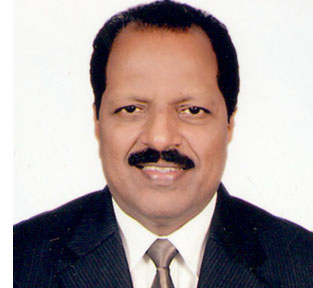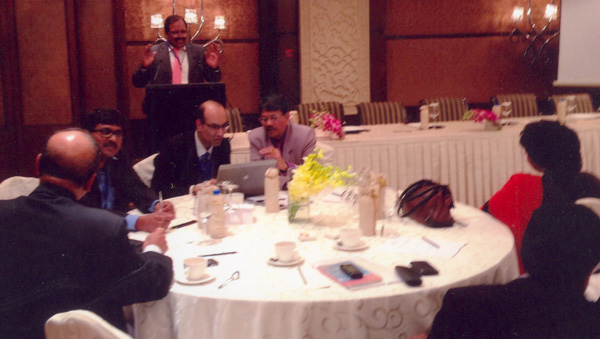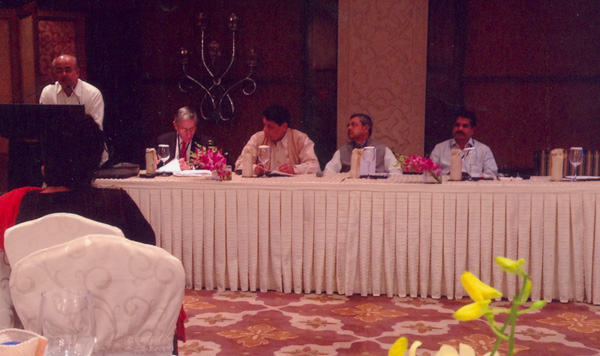
Mangalore, November 23: A delegation led by national IMA leader Dr K Mohandas Bhandary of Mangalore and comprising Deputy Speaker of Karnataka N. Yogish Bhat, Mangalore MLA U T Khadar, Malleshwaram (Bangalore) MLA Dr Ashwath Narayan, Director of Cancer Prevention Project, Institute of Public Health, DrVishal Rao, Additional DG Karnataka A M Prasad participated in a high level international leadership seminar on Tobacco Control in India held recently at Taj Palace Hotel, New Delhi.
The Objectives of the seminar were to develop a better understanding of the need for and benefits of tobacco control among state leaders and to enhance state level political support for the tobacco control. The seminar was sponsored by John Hopkins School of Public Health in collaboration with Ministry of Health and Family Welfare, Government of India.
Participants of this high level seminar comprised about 50 high profile individuals representing central and state governments and other policy makers with selected civil society organizations representing the different states of India.
Notable individuals who participated in this seminar are Dr Nata Menabde, WHO representative; Mr Keshav Desiraju, Special Secretary, Ministry of Health and Family Welfare; Ms Shakunthala Gamlin, Joint Secretary, Ministry of Health and Family Welfare, Sri Adur Prakash, Revenue Minister of Kerala, Education Minister of Bihar and Health Ministers of other states.
Dr Bhandary, being the group leader made an overview of Karnataka State Cigarette and other Tobacco products Act 2003 (COTPA) in which Section 4 prohibits smoking in public places which includes all places having access to public except roads; Section 5 which prohibits display of advertisements at the point of sale of tobacco in shops; Section 6 which prohibits sale tobacco to minors. Gutka has not been banned in Karnataka, though it is banned in the neighbouring states like Kerala, Andhra and about 12 states in India. He suggested that a high powered committee comprising principal Secretaries from health, home, education, urban development, municipalities, transport should collaborate with big institutions like medical colleges should strongly involve in implementing the act in Karnataka.
“We need to have surveys and studies, sensitization, orientation and re-orientation programmes. We should have political and administrative commitment along with strong establishment, enforcement and implementation mechanism including fixing of accountability of implementing officers. More and more concentration should be given to youth who are the new tobacco users,” he said.
Instead of opening more and more cancer hospitals, we should pay attention to having more awareness programmes in line with the golden rule 'Prevention is better than cure.' He urged the government to take up alternatives to the problems of tobacco and arecanut growers and due attention should be given to Beedi Rollers and other people involved in tobacco related industries.







Comments
Add new comment